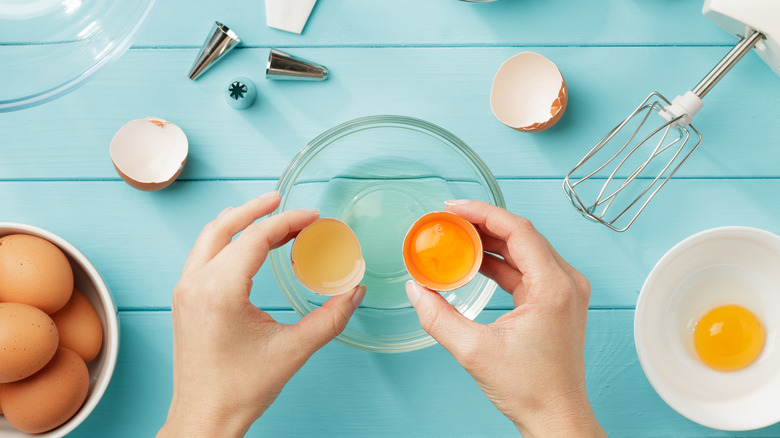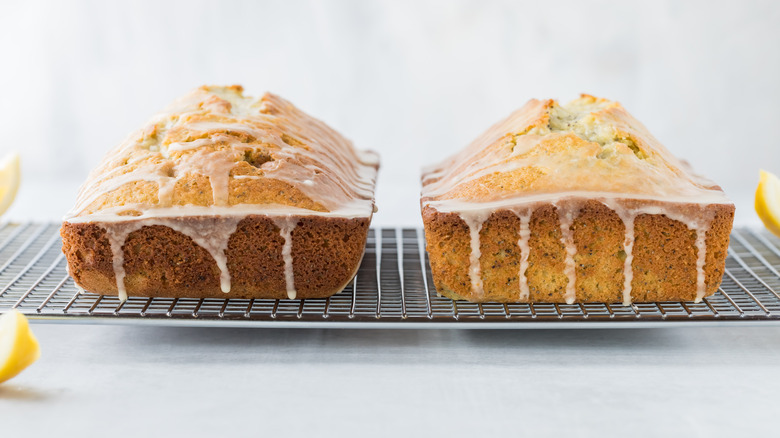Do You Really Need To Separate Eggs When Baking?
There's an actual reason why Mary Berry always tells bakers on The Great British Baking Show to read the whole recipe before they start. Overlooking a detail as small as separating the egg yolks from the whites before they go into the mixing bowl can make a major difference in the outcome of a dessert.
While it's easy to assume that all the ingredients will just get mixed together at the end, Get Cracking explains that in some recipes, the order that yolks and whites go in does matter. They have their own individual properties, each of which is essential to achieve the right consistency for certain baked goods.
Egg yolks alone are used to add moisture and richness, whereas egg whites by themselves serve to aerate a batter for a texture that's light and fluffy. However, the primary function of whole unseparated eggs is to bind the ingredients together. So whichever egg properties you need to bring out the most depends on what you're making.
What happens when you use whole eggs in a recipe that calls for separated eggs?
When baking with separated eggs, yolks are more flexible than whites. According to Serious Eats, it's generally okay to leave behind traces of whites in the yolks. But if too much yolk makes its way into the whites, it may be harder to salvage. In addition, the website explains that the yolk's fat prevents egg whites from forming stiff peaks when beaten.
This is particularly important in desserts like macarons and baked Alaska, where turning egg whites into a meringue is the key to making the recipe work. If you're simply baking a cake where the whites are added for the sole purpose of extra fluffiness, the blog Loaves and Dishes confirms you can technically add whole eggs instead and still end up with an edible cake. It might be a lot denser, but it will still taste the same. If you don't want to mess with the texture, it's best to stick to separated eggs whenever a recipe calls for them.

